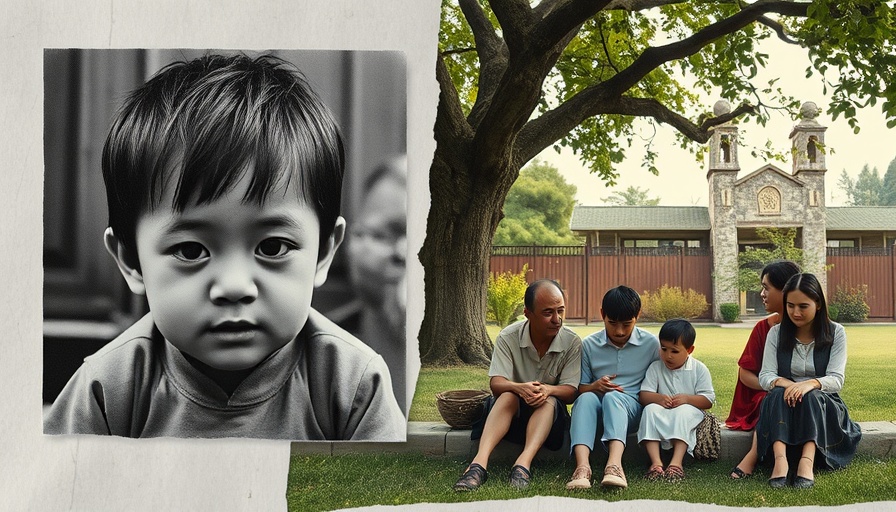
Understanding the Past: The Importance of Memory
In our journey through history, it is crucial that we remember the injustices faced by communities, particularly marginalized groups like the Japanese Americans during World War II. This period serves as a poignant reminder of the consequences of silence in the face of injustice. Hundreds of thousands of Japanese Americans were forcibly incarcerated, stripped of their rights and dignity simply due to their ethnicity. As we reflect on these historical events, we must ask ourselves how we can learn from them and ensure that we advocate for those who continue to be oppressed.
Connecting Generations: Why This Matters to Families
The legacy of such injustices isn’t only a tale from our past; it can resonate deeply within the family structure today. As Christian families gather around the dinner table or during family devotionals, discussing these topics can foster understanding and compassion among younger generations. It encourages our children to think critically about issues of fairness and justice, aligning with biblical teachings that call us to stand for the oppressed.
Embracing Unity: Building Bridges in Our Communities
In today's divisive climate, it is more important than ever for communities, especially Christian ones, to embrace unity. We can draw inspiration from the stories of resilience, courage, and hope of those who lived through the internment experience. By celebrating diversity and acknowledging past wrongs, we can build connections that strengthen our community bonds and foster inclusiveness.
Awareness and Action: The Role of Faith in Advocacy
Faith calls us to action. It prompts us to use our voices to speak against injustices, advocating for those who cannot. By participating in educational and advocacy efforts aimed at addressing the issues faced by contemporary communities, we embody the teachings of Christ. Just as churches took a stand during the civil rights movement, our faith can inspire us to engage in social issues today.
Practical Steps for Families: Teaching and Engaging
As families, we can take tangible steps to ensure that we do not remain silent. Visit museums, read books, or watch documentaries that illuminate the stories of those who experienced injustice firsthand. Discuss these stories as a family. Encourage your children to understand that empathy and justice are not just optional; they are integral parts of living out faith. Moreover, consider getting involved in local efforts that address immigration and community support issues.
A Call to Compassion: Engage in Conversations
Now more than ever, we need to foster conversations not just within our families, but within our communities. Engage your youth groups, Sunday School classes, and family gatherings in discussions about historical injustices, ensuring that we honor the memories of those affected by advocating for justice in modern issues.
The narratives of the past can guide us toward a future of understanding and love. Let us not shy away from these discussions, but rather embrace them so that we can cultivate a spirit of compassion and justice in our world.
 Add Row
Add Row  Add
Add 








Write A Comment